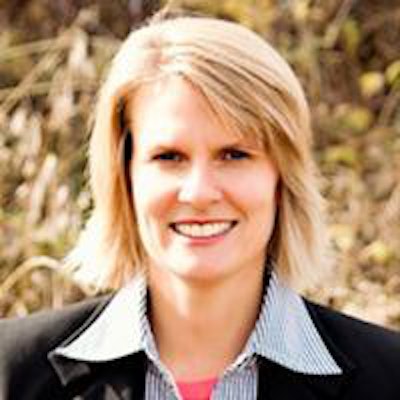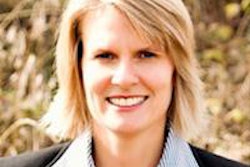
Weeds -- they take over if unattended. I just planted my garden plots and already small little weeds are emerging through the organic dairy doo soil. Geez! I just planted the seeds less than a week ago. It's a familiar situation, though, because this is part of the growing process.
Much like my garden plot, our dental plots -- also known as practices -- grow weeds, too.
The following are my top four weeds in a dental office:
- Technical minutiae weeds
- Clutter weeds
- Drama weeds
- Negativity weeds
Staying ahead of the weeds
 Lisa Knowles, DDS.
Lisa Knowles, DDS.First of all, accept that weeds are part of the progression. You can prevent some weeds and you can manage the weeds, but it is very, very difficult to completely eliminate the weeds. Human behavior leads to weed growth, especially when in the infantile stages of practice management and when no one is tending to the dental "garden."
For technical weeds that result in an overemphasis on minute details that may or may not ever bloom, take a step back and look at how much space you have and how much growth is needed to feed the family (such as production needs).
Data are invaluable when trying to figure out what is working and what is not. Many times I see dentists focus on the smallest of details when it's the overall system that seems to be dysfunctional. We dentists are problem solvers, and it's easy to get trapped in the process of how to fix things immediately. Broken No. 9 -- easy, fix it. Done. Broken hiring system? Easy -- different ad. Done.
Maybe not quite so easy. What kind of ad? Who should write it? Where should it be placed? Who do we want to hire?
Before you know it, an entire team meeting is spent on the hiring process and the new ad desired. I am not suggesting we should ignore the needs and importance of this process, but I am suggesting a different approach may be necessary. Systems such as hiring and firing are not quite as simple to repair as the incisal chip on No. 9. Yet, we try to apply the same rationale -- the "I can fix it now" process. I wish we could. Before trying to resolve the large gap in the office in one meeting, let's consider our options.
What if we delegated this task to an office manager or someone in the office? Or, what if we have an office manual that spells out the procedures for hiring a new team member with job descriptions and sample ads?
For those that have been through this process, it seems quite simple to have all of this information at our fingertips. But for someone just starting out or for someone with a long-standing team, these manuals might seem like a waste of time. Let me just say, they are not.
“Becoming the unanticipated human resources coordinator is one of the hardest and most stressful positions to be in while also still treating patients.”
Like a good farmer prepares for inclimate weather, so, too, must dentists prepare for staff turnover or illnesses. Becoming the unanticipated human resources coordinator is one of the hardest and most stressful positions to be in while also still treating patients. The more prepared we are for change, the easier change is to accept and fix.
The ADA has good manuals already in place with templates to use with sample job descriptions and advertisement options. Having these templates available and already in place saves countless last-minute scrambles when trying to get the team moving forward again.
So, weed out the minutiae details and delegate tasks to employees. Manuals and maintenance of manuals are great tasks for team members to work on while a doctor may be on vacation or during a slow time of the year. Better yet, have them in place while buying a practice and finish them as the team starts out together. Ask to see these manuals when considering the purchase of a practice or considering an associateship position. If an office has them and uses them, this tells you some information about the organization of the office.
Clutter and drama weeds
Ensure the office is free of clutter. Clutter literally clutters the brain. Weed out the instruments never used. Annually, go through charts (if you still have them) and archive what is needed. Clear off desktops and countertops. Be a tourist in your own practice. Look around and see what looks congested or messy. Ask team members to make a list of what they perceive to be cluttered. Then divide the duties, and get organized and uncluttered.
Drama weeds choke the life out of good, growing professionals. People with life crisis after life crisis wear out the team. I am not talking about real-life crises; I am talking about team members with issues like never-ending dating problems, relationship issues, or self-inflicted financial issues. These team members shake the team up on a regular basis with frequent absences due to family emergencies or frequent sicknesses. They place a heavy burden on the team.
It may be no fault of theirs. They truly may be going through horrendous moments in their lives. It's up to the leadership in the office to try and help these team members either resolve their conflicts and issues or help them find ways to temper it within the office, so that it does not impact the good flow and energy within the office. Ultimately, if these team members cannot gain resolution from counseling or learn to temper their impact on the team as a whole, they may need to be pulled out from the office.
Negativity weeds
Negativity drains the dental team. I once worked with a dental assistant who had a hard time trying new things. She told me repeatedly how we could not do things. "I doubt that will work. I am not sure where that is. I have never done that before. I have never seen that before," she explained in many situations.
Dentists also tend to like things in certain ways and rebuff suggestions from team members. "We are losing patients, and there is nothing we can do. The economy has been so bad these past five years. I don't want to try that. I don't think I could do that," the dentists reply.
Lack of optimism is a weed that has to be removed from the office environment, because it spreads rapidly. Being negative is a choice, and it fosters negative financial outcomes.
Ask one another to rate each other on a 1-to-10 optimism scale. If dentists or their team members receive anything below a 7, it's time to perk up the team and discuss the reasons behind the negativity.
In the next article, I will discuss how to grow your practice by feeding the dental team in multiple ways. In the meantime, watch for those weeds, and hack away at some of the big ones before they become too deeply rooted. Once the roots are deep, it is much harder to remove them from the practice's culture.
Lisa Knowles, DDS, is the founder and CEO of IntentionalDental Consulting. For more information, contact her at [email protected] or 517-331-3688. Visit her blog site at Beyond32Teeth.com or website at IntentionalDental.com.
The comments and observations expressed herein do not necessarily reflect the opinions of DrBicuspid.com, nor should they be construed as an endorsement or admonishment of any particular idea, vendor, or organization.


















